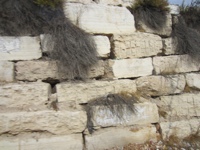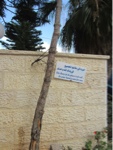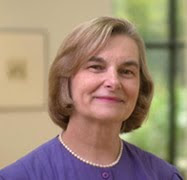Our visit to the very ironically named Phoenix Center at the Dheishah Refugee Camp began our day with a vision of the plight of those consigned to live, be born, and die in the camps. We looked out on the "camp"--not what I had imagined--tents and temporary shelters but shabby structures with inadequate infrastructure; little or no electricity; very unreliable water and absolutely no play areas for children. The crowding in the houses is uncomfortable at best and intolerable at worst. There is no privacy. Couple that with constraints on mobility imposed by ever present, ever changing and ever increasing checkpoints where the young IDF guards are often problem-making rather than problem solving. It was heartbreaking to hear Mazan had no animosity in his voice or his heart as he described the reality of life in the camp--which clearly suggested to us deprivation of basic civil/human rights during the 63 years his family (and many others) have been required to live in the camps.
When we asked what we might do to improve the conditions, he urged us to do all we could to present a balanced view of conditions in the camps and work to figure out a process for solution. We need to all acknowledge the history--not a theoretical construct but this man before us whose father was killed. While Yad Vashem, to which we would journey next, depicts the pain and suffering of the past, it is important to find meaningful ways to acknowledge the pain of the present evidenced in this camp. Mazan said as difficult as conditions are here, "it is the Champs Elysees in comparison to Gaza." It is not only a great stone wall but an even bigger wall of fear and insecurity that seems to be perpetuate the conditions that we see all around us.
Subscribe to:
Post Comments (Atom)







No comments:
Post a Comment